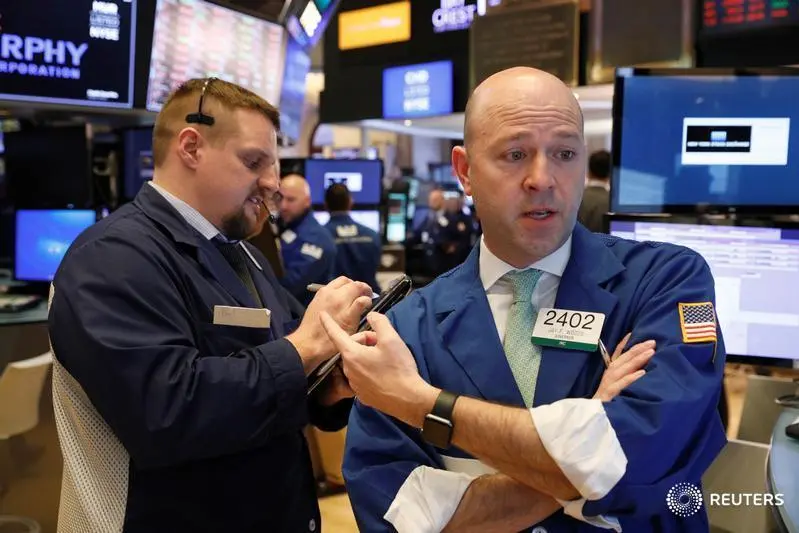PHOTO
LONDON/HONG KONG- Global shares stumbled on Tuesday, rattled by concerns over China's regulations for its once-freewheeling internet sector and a surge in COVID-19 infections worldwide driven by the Delta variant.
U.S. Treasury yields edged up after data showed U.S. retail sales fell more than expected in July, although spending on services could keep the world's largest economy on a strong growth path in the third quarter.
The pan-European STOXX 600 was 0.1% lower, heading for its second straight session of falls after its longest winning streak in over a decade.
In U.S. stock futures, the S&P 500 e-minis, was down 0.5%.
Chinese regulators issued draft rules on Tuesday for the internet sector, banning unfair competition and restricting the use of user data, the latest move in a crackdown on the country's powerful tech companies.
The tech index in Hong Kong, where several of China's biggest internet companies are listed, fell 3.1%, while Tencent, Alibaba and Meituan dropped by 4.1%, 4.8% and 3.5%, respectively.
"Evolving government policy initiatives are weighing on sentiment and causing some uncertainty. That said, regulation is a constant in China," said Catherine Yeung, investment director at Fidelity International.
"Investors must accept and incorporate this into their risk-reward frameworks and factor it into the assessment of the long-term business prospects for companies."
MSCI's broadest index of Asia-Pacific shares outside Japan was down 1.3% and China's blue-chip CSI300 index dipped 2.1%.
Amid signs that the world's economic recovery is losing momentum, the continued spread of new COVID-19 variants and the impact on the global economy have also shaken market confidence.
New Zealand's dollar fell to a near three-week low after a national lockdown was ordered following the first reported coronavirus case in six months.
The currency was down 1.4% at $0.6927, on track for its biggest daily fall since May .
Investors globally were also monitoring turmoil in Afghanistan after the Taliban seized the capital Kabul though markets have not reacted strongly so far.
The market consequences of the events in Afghanistan for the developed world had been limited so far, Deutsche Bank analysts said in a note.
"Instead, the longer-term risk is that Afghanistan could become a haven for terrorist groups, and such attacks have historically had serious market ramifications of their own," they said.
Another risk from the events in Afghanistan is that they could complicate U.S. President Joe Biden's push to pass economic proposals, alongside the potential for another fight over the debt ceiling in coming weeks, Deutsche Bank said.
Investors are focused on when the Federal Reserve will rein in its easy money policies, with minutes from the central bank's latest meeting due on Wednesday.
Boston Federal Reserve Bank President Eric Rosengren said on Monday that one more month of strong job gains could satisfy the U.S. central bank's requirements for beginning to reduce its monthly asset purchases.
The U.S. dollar was up 0.2% at 92.87.
The Australian dollar fell to a nine-month low after the latest central bank meeting minutes showed policymakers would be prepared to take policy action if coronavirus lockdowns threaten a deeper economic setback. The currency was last down 0.7% on the day at $0.72885.
The yield on benchmark 10-year Treasury notes gained after the weak retail sales data. The yield on benchmark 10-year Treasury notes was at 1.24%, after hitting its lowest level since Aug. 5 in earlier trading. That compared with its U.S. close of 1.26% on Monday.
Germany's 10-year yield fell as much as 3 basis points to below 0.50% in early trade, the lowest since Aug. 5.
U.S. crude dipped 0.8% to $66.8 a barrel. Brent crude fell 0.6% to $69.1 per barrel.
Gold was 0.3% higher. Spot gold traded at $1,793.11 per ounce.
(Editing by Richard Pullin, Jacqueline Wong, Susan Fenton and Timothy Heritage) ((tom.arnold@thomsonreuters.com;))





















